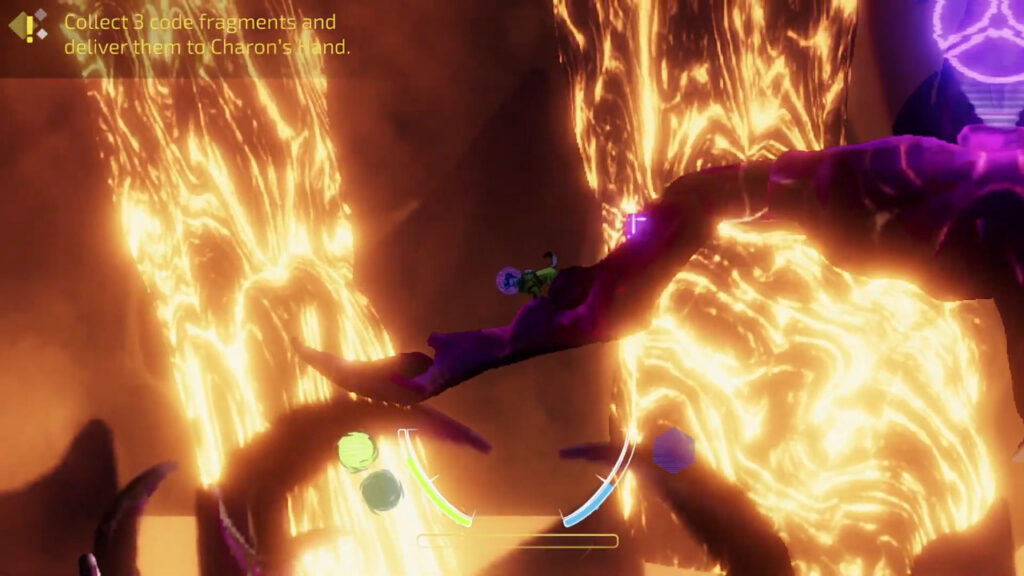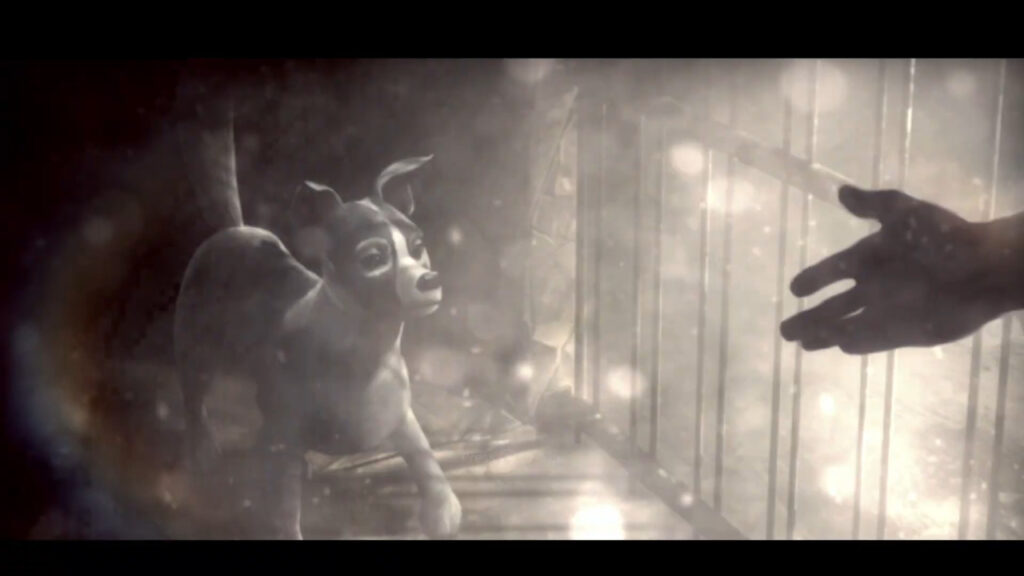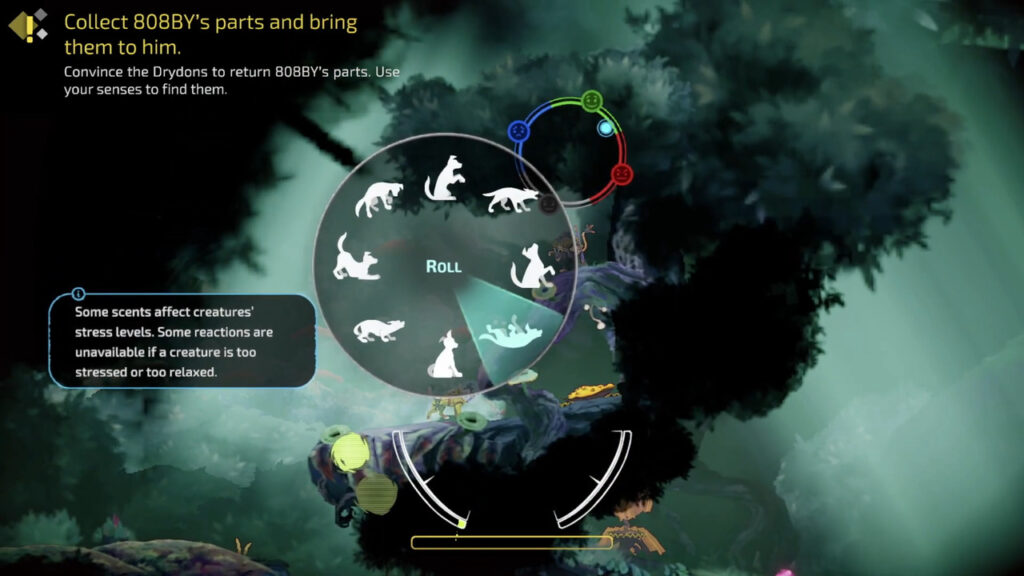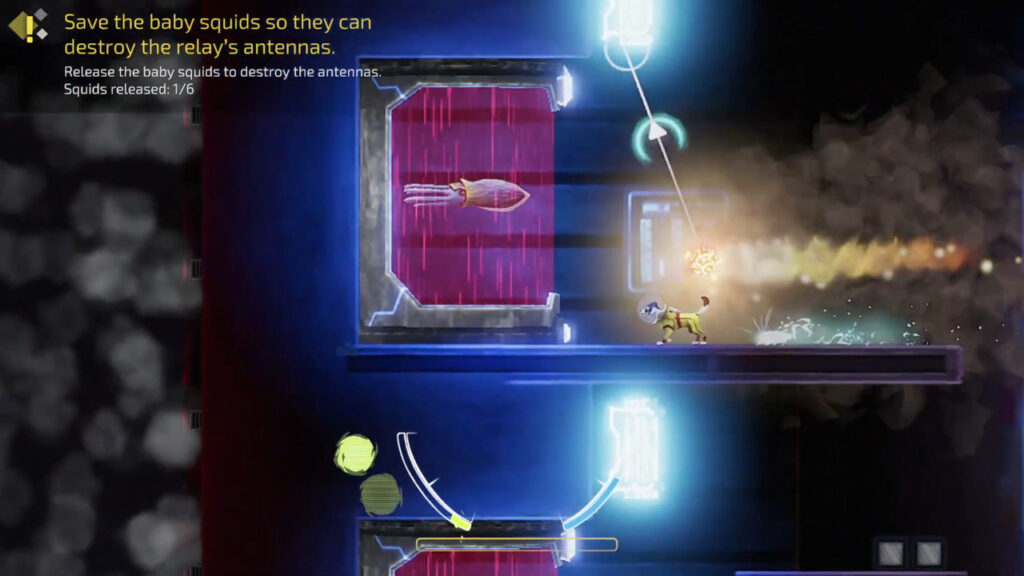
Developer: Longterm Games
Publisher: Reddeer.games
Platform: PC, PS4, PS5, Xbox One, Xbox Series XIS, Switch
Tested on: Switch
Space Tail: Every Journey Leads Home – Review
Dogs are a common sight in video games, but they tend to appear as companions or NPCs rather than being the protagonist. It’s even rarer for a non-anthropomorphic pooch to take center stage, so Space Tail: Every Journey Leads Home should pique the interest of canine fans by virtue of having a realistic dog as its star. There is of course more to the game than simply being able to step into the paws of a dog: an epic and emotional journey through outer space awaits those that take on the game, in theory at least. Is Space Tail out of this world or does it screw the proverbial pooch?
Story
Most people are at least vaguely familiar with the real-life experiments that involved different animals being shot into space during the cold war. While Space Tail doesn’t directly reference an individual real-life animal, like the world-famous Laika, the game was inspired by these true events. Our protagonist is Bea, a dog, who is rescued from the streets as a stray puppy by a young boy. The boy’s father happens to work at a NASA-like facility and enrolls our canine protagonist in a training program, which ends when the dog is shot into space. Against all odds, Bea survives this harrowing ordeal. Now she finds herself stranded on an unknown planet alongside her robot companion 8088Y. Heartbroken that she is separated from her family, Bea is set on returning home. It’s the beginning of an epic journey, which hopefully ends with her being reunited with the boy that adopted her.
It’s a surprisingly sad and touching story, but its impact is undermined somewhat by the abrupt pacing. Emotional scenes are cut short by lengthy loading screens (which also affect the flow of gameplay, but in a less egregious way). It’s a shame because although Space Tail doesn’t necessarily have a deep or complex narrative, what’s present here is very relatable. A dog is man’s best friend after all. We could also lament the use of static images rather than animated cutscenes to deliver the story, but in practice, this didn’t bother us all that much as it lends a storybook effect to Space Tail.
Graphics
Art direction is definitely one of Space Tail’s strongest suits. The hand-drawn art during the story scenes draws you into Bea’s story. The various environments are characterized by beautiful lighting effects. A particularly bold choice that stood out to us was that Bea’s family was only depicted in the form of black silhouettes, juxtaposed against the highly detailed drawings. This might’ve created a feeling of alienation if it was handled incorrectly, but by making these characters essentially blank canvases, it’s inevitable that players project themselves, creating an inherent emotional connection with the dog. We should note that if you decide to play the game on the Switch, like we did, that there is a distinct visual disparity between playing the game in handheld mode versus docked mode. Switch Lite players in particular, beware: the game isn’t easy on the eyes on the small screen.
Sound
A cinematic orchestral score lends a lot of credence to Space Tail’s soundscape. The music spans a wide range of emotions that suits both the story scenes and the in-game action during gameplay. While none of the tracks are particularly memorable outside of the game itself, they do create the right atmosphere. The addition of a narrator was a stroke of brilliance too, as this further emphasizes the emotional impact of the story, despite the occasional awkward interruption from a loading screen. Rounding things out are the sound effects, which are more than serviceable. Bea’s dog sounds are realistic, of course, and the aliens respond with all matter of strange sounds that somehow manage to convey their emotions rather convincingly.
Gameplay
At first glance, it seemed like we wouldn’t be handing out any originality awards to Longterm Games for Space Tail’s gameplay. The game initially presents itself as a fairly standard puzzle platformer after all. As we spent more time with the game, however, we found ourselves pleasantly surprised as subtle but significant mechanics were introduced, both in the form of Bea’s abilities as a canine, and through the companions she befriends on her journey home. This is one of those games where the sum is greater than the individual parts. The core gameplay might not feel particularly innovative, but combined with the endearing story, the fantastic audiovisual presentation, and a handful of small and quirky mechanics, Space Tail manages to elevate itself above its thirteen-in-a-dozen competitors. Space Tail is a short and linear affair, with clearly defined goals. Your objective is on-screen at any given time but if you do decide to deviate from the path laid out for you, you’ll discover secrets and helpful benefits that can ease the journey, like a shield that prevents Bea from taking damage.
The game’s unique mechanics come into play when it comes to the puzzles that Bea encounters and they are built around her literally being a dog. She’s got a very strong sense of smell, which she can use to sniff out familiar scents. Likewise, her hearing and eyesight are fantastic, and all of these elements are played with in clever ways. Puzzles may involve using canine eyesight for figuring out how switches are connected so you can activate them in the right order for example, or using your sense of smell to avoid poisonous gases. In addition, Bea’s natural charisma as a dog comes into play, as she can befriend all kinds of alien creatures the way dogs naturally do: by rolling over or giving a paw. Many of the entities that she connects with in this way are able to aid her in a variety of ways, but the most prominent ones are Rose, a sentient comet that can crash into obstacles, and 8088Y, who has hacking powers.
While we do enjoy how Space Tail implements the idea of playing as a dog, there were some areas where the concept fell flat. Communicating with aliens is often a case of trial and error. For example, you never know how they will respond and you need to figure out which exact action triggers a beneficial response. Whenever this happened, it felt like we were just randomly trying things rather than there being any logic behind this, and it removed our sense of agency. Another less-than-ideal element were the combat mechanics, or at least, the lack thereof. Bea encounters plenty of enemies but there are no direct ways to deal with them. She has to either avoid them entirely or solve environmental puzzles to defeat them, making her feel far more fragile than she should be.
Another glaring issue with Space Tail is how short it is. Playing through the game takes roughly three hours, and although there are some hidden secrets that Bea can sniff out and additional skins to unlock, you’re still looking at a rather skinny package. It’s a shame because we feel a lot of Space Tail’s potential remains underutilized. Certain mechanics only come into play once or twice during the entirety of the game, and the only really meaningful emotion used to communicate with aliens is happiness. Different actions triggered different responses, and it’s entirely possible that there are multiple possible beneficial solutions. However, we found ourselves struggling with the emotion mechanic the first few times and in the latter half, we simply kept spamming the same actions over and over again. The only memorable time when appealing to a different emotion was actually necessary was during the tutorial. Ultimately, we couldn’t help but feel like the game could have been better if a handful of adjustments were made. Space Tail isn’t a bad game in the slightest, but it left us wanting more.
Conclusion
We’d describe Space Tail as a mixed bag, but that wouldn’t do the game justice, as there is so much to like here. From the simple yet touching story to unique gameplay mechanics and clever puzzles, Space Tail has all the elements to make a lasting impression. Unfortunately, Longterm Games doesn’t capitalize on the game’s potential. The short length left us wanting more, the emotional impact of the story was undercut by awkward pacing, and some of the mechanics never got a chance to shine. As it stands, Space Tail isn’t worth the €19.99/$19.99 asking price but if a performance update or a significant discount is in the game’s future, then it might be worth looking into.










No Comments